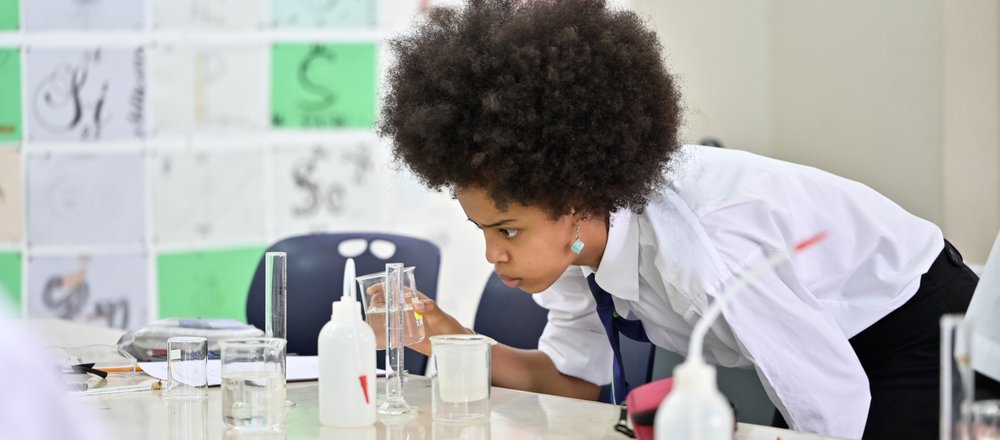Overview

Curriculum
Early Years
Hillcrest Early Years teachers use thematic units to engage children in the learning process with a variety of lessons and projects in subjects ranging from art and music to science and math.
A common theme keeps student learning focused on a broad concept while touching on specific knowledge and skills throughout.
Preparatory School
Hillcrest Preparatory School follows the British Curriculum, also known as the National Curriculum for England, as well as the Common Entrance syllabus for pupils in Years 7–8.
Within this framework, we contextualise our learning to make the most of the rich opportunities offered by the environment in which we live, both in Kenya and more widely across Africa.
Secondary School
Hillcrest Secondary School follows the British National Curriculum while making the most of the opportunities provided by our environment and location in Kenya. The breadth of the curriculum offered at both Years 9–11 (IGCSEs) and Years 12–13 (A-Levels & BTECs) is second to none.
The Cambridge International Examinations Board is our preferred choice of syllabus in the majority of subject areas.
Educational Technology
Integrating Technology
At Hillcrest we believe that technology provides a way for us to improve and strengthen our teaching and the learning of our students. Since September 2014, Hillcrest has operated an ambitious 1-to-1 device programme across the whole Secondary school.
Every child from Year 9 – 13 has a school-approved device, which they carry with them for use in class.
The teaching of ICT skills is integrated into the curriculum and pupils use ICT tools in all subjects; Computer Science is also offered as an academic subject.
Virtual learning – extending learning beyond the classroom
Hillcrest subscribes to a virtual learning environment (Firefly) — an online tool that brings together teachers, pupils and parents — allowing parents to easily engage with their child’s learning; checking homework, timetables and subject specific pages.
For pupils, it is easy for them to access all the resources they need to stay organised with their school work, projects, revision and homework, all in one place.
All students are screened on entry to the school and are monitored throughout their time at Hillcrest to ensure that no one goes without help if it is needed. Those who are identified as needing specialist help are referred to an Educational Psychologist for a full assessment of their learning styles and any difficulties.
Learning Support at all levels
Our vision is underpinned by the recognition that every child is unique, and we respond to this with a personalised approach for every student.
The Learning Support Department supports students with specific learning difficulties or differences, as well as Gifted and Talented learners, to develop the skills required to become independent, confident learners within the school environment.
To achieve this, we have a permanent staff of specialist learning support teachers in Maths, English, English as an Additional Language (EAL), and Focus training.
Learning Development
Our pupils develop a passion for reading through regular individual reading sessions along with group or class reading lessons, which allow stories to be shared and responded to collectively. They look forward to their weekly visits to the school library, where they borrow books and enjoy interactive stories.
Children are inspired to explore different genres as well as pursue their own interests. Lessons are engaging and stimulating. Children are encouraged to play an active role in their learning, to think for themselves, and to make connections with their own experiences and the world around them.
Lessons are engaging and stimulating. Children are encouraged to play an active role in their learning, to think for themselves, and to make connections with their own experiences and the world around them.
Evaluation & Monitoring
Academic progress is monitored rigorously by the Headteacher, the Deputy Head, Form Tutors and Subject Teachers against baseline tests taken at the start of each academic year.
Year 9’s sit for their Midyis, Year 10’s and 11’s for their Yellis and Year 12’s sit for Alis. These baseline tests are “Curriculum-free” and assess the key areas of vocabulary, Mathematics and non-verbal skills. Through these, teachers get a good understanding of students’ aptitude for learning and potential.
Using the assessment feedback, teachers can monitor performance and measure progress. The assessments offer predictors of students’ future attainment in specific subjects, enabling teachers to set motivational targets and to maximise potential. The baseline grades act as minimum floor targets only.
Students who are underachieving are identified by subject teachers and are then monitored closely by the Head of Year, Deputy Head Academic and Headteacher as part of the School’s intervention plan
Learning Journeys
As your child develops and progresses, they will be observed by their teachers, and their Learning Journey will be mapped with reference to the school-level Learning Goals. Continuous, quality observations are embedded in every-day practice to develop an accurate and unique perspective on each child.
These observations, together with photographs and pieces of work, are recorded in a Learning Journey document as a record of your child’s progress and development over the school year.
This development-focused framework involves teachers discovering each child’s level of achievement, their interests, and their learning styles. It is used to guide our teaching and to help moderate your child’s learning.








